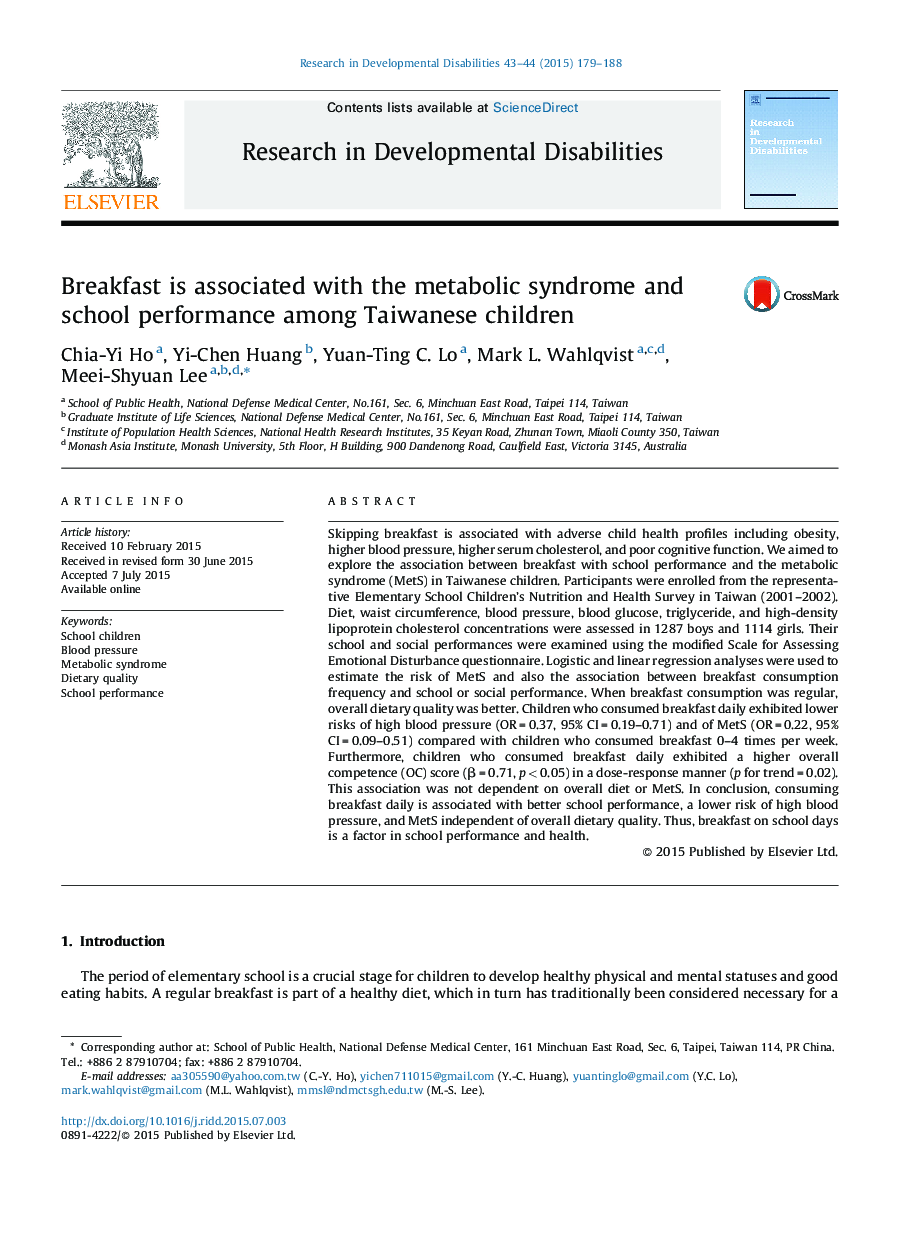| Article ID | Journal | Published Year | Pages | File Type |
|---|---|---|---|---|
| 6848563 | Research in Developmental Disabilities | 2015 | 10 Pages |
Abstract
Skipping breakfast is associated with adverse child health profiles including obesity, higher blood pressure, higher serum cholesterol, and poor cognitive function. We aimed to explore the association between breakfast with school performance and the metabolic syndrome (MetS) in Taiwanese children. Participants were enrolled from the representative Elementary School Children's Nutrition and Health Survey in Taiwan (2001-2002). Diet, waist circumference, blood pressure, blood glucose, triglyceride, and high-density lipoprotein cholesterol concentrations were assessed in 1287 boys and 1114 girls. Their school and social performances were examined using the modified Scale for Assessing Emotional Disturbance questionnaire. Logistic and linear regression analyses were used to estimate the risk of MetS and also the association between breakfast consumption frequency and school or social performance. When breakfast consumption was regular, overall dietary quality was better. Children who consumed breakfast daily exhibited lower risks of high blood pressure (OR = 0.37, 95% CI = 0.19-0.71) and of MetS (OR = 0.22, 95% CI = 0.09-0.51) compared with children who consumed breakfast 0-4 times per week. Furthermore, children who consumed breakfast daily exhibited a higher overall competence (OC) score (β = 0.71, p < 0.05) in a dose-response manner (p for trend = 0.02). This association was not dependent on overall diet or MetS. In conclusion, consuming breakfast daily is associated with better school performance, a lower risk of high blood pressure, and MetS independent of overall dietary quality. Thus, breakfast on school days is a factor in school performance and health.
Related Topics
Life Sciences
Neuroscience
Behavioral Neuroscience
Authors
Chia-Yi Ho, Yi-Chen Huang, Yuan-Ting C. Lo, Mark L. Wahlqvist, Meei-Shyuan Lee,
